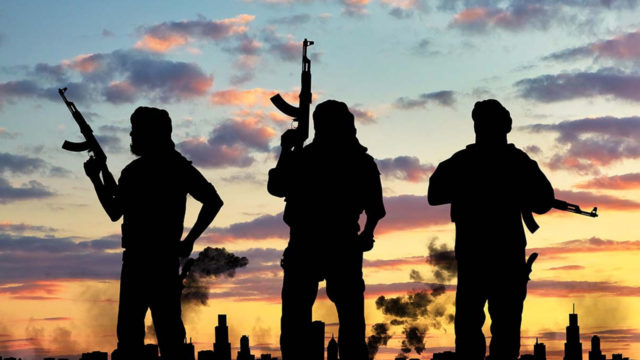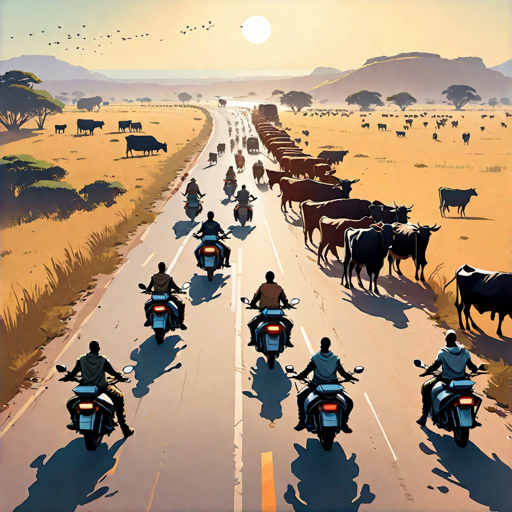Mangu Local Council, located in the central region of Plateau, faces ongoing challenges with community tensions that often lead to religious and ethnic conflicts. The complex situation is intensified by the geographical and cultural overlap, where the mostly Muslim north meets the predominantly Christian south, creating a diverse mosaic of communities.
On Tuesday, January 23, 2024, State Governor Caleb Mutfwang enforced a 24-hour curfew in response to deadly violence in the local council. Notably, exceptions were granted for funeral ceremonies, providing the community with the opportunity to pay their respects to the departed.
Mangu is a Local Government Area in Plateau State, Nigeria. The Mwaghavul people are the major ethnic group found in Mangu. They occupy the districts of Panyam, Pushit, Kerang, Mangun, Kombun, Ampang West, and the local government headquarters (Mangu). Other ethnic groups include the Jipal (found in Kaper, Katul, Kabum, Rundum, Kanjing, Bul, Male, Zwagal, Kwa, Kaburuk, Koplar and Dungning.) Pyem (found in Gindiri).
The Last time violence was recorded in Mangu was April, 2023. It was marked by a resource-based conflict between Mwaghavul farmers and Fulani herders. This prolonged conflict, lasting months, resulted in over 300 lives lost and significant damage to schools, farmlands, livestock, houses, and other properties. Accusations from both parties involved claims of inviting external mercenaries for what they described as “land grabbing, forceful eviction, and ethnic cleansing.”
Joseph Gwankat, the President of the Mwaghavul Development Association, said the fresh attack occurred on Tuesday night while residents gathered at a compound in the village, adhering to the curfew imposed by the local government.
Sources indicated that in addition to the attacks in Sabon-Gari and Mangu, assailants spread terror to other communities. Kwahaslalek village, located in the Mangu Local Government Area of Plateau State, witnessed a tragic incident where at least 30 individuals, predominantly children and women, lost their lives to the attackers. The assault resulted in the destruction of houses and property. On the same night, Kinat and Mairana, bordering Mangu and Barkin Ladi local government areas, also faced attacks.

The state police officially verified the Tuesday night attack on Kwahaslalek village, along with the reported burning of the market and worship centers in Mangu town. As a result the challenging situation, DSP Alfred Alabo reassured the state’s residents of their safety. He mentioned that normalcy was slowly being restored in Mangu through the deployment of security personnel and a surveillance helicopter.
Multiple eyewitnesses suggest that two significant incidents on Monday might have triggered the violence.
In one instance, a Mwaghavul man from Sabon Gari accidentally collided with a herder’s cattle while riding a motorcycle. The incident occurred as other vehicles and motorcycles were waiting for the herds to cross the bridge. In response, the herder, angered by the collision, retaliated by striking the man with his stick. Military intervention later resolved the case. This conflict was attributed to the right of way, an ongoing concern in some parts of Mangu.
Galji Shipi, the Special Adviser to the governor on security and homeland safety, expressed a similar perspective. In an interview with journalists, Shipi stated that the recent crisis is not politically motivated.
He was quoted by PUNCH, mentioning that supporters of the Fulani herder group entered the location and exacerbated the issue. In his words.
“The current situation in Mangu is a result of two people that escalated. The crisis is not political or has anything to do with the farmers-herders crisis. It was just two human beings that had an altercation and by coincidence, one of them happens to be a herder and the other person is a native.”
He added, “The native was crossing with his motorcycle and the Fulani was grazing his cattle and crossing the road and that obstructed traffic and there was an altercation between them. When that happened, the Fulani people came in support of their own and the natives also came in support of their own and the thing just got out of hand and that led to the imposition of curfew in Mangu.”
The incident unfolded in Mangu, claiming the lives of eight individuals as cattle wandered onto a road, obstructing traffic and triggering a series of violent confrontations, local media confirmed.

The second instance was reported cases of attempted cattle rustling from herders’ settlements near Gangara Kwata on Monday evening. The violence in Mangu, Plateau State, erupted following an unsuccessful attempt by armed thieves to steal Fulani cattle, as highlighted by local media reports. Residents noted that the violence began around 6:00 a.m. on Tuesday and persisted until the governor imposed the curfew a few hours later.
The conflict, mainly involving indigenous farmers and migrant herders, escalated around 9:30 a.m. when a significant number of armed men invaded the entire community. Chaos ensued as the altercation caused the escape of cows, resulting in casualties and destruction. The intensity of the confrontation extended into both Christian and Muslim communities, with worship centers becoming targeted locations, further exacerbating the unrest.
Regardless of the triggering factors for the unrest, numerous innocent lives have been lost to the conflicts. Mosques and churches became targets of destruction in Nigeria’s central Plateau state amid escalating tensions over a fatal clash involving cattle. According to a BBC report, six mosques and two churches were burnt down in the mayhem.
Amid uncertain casualty figures, armed men carried out the destruction of churches and mosques in the suburbs of Anguwan Dawo, Old Market, and Bayan Kasuwa in the local council. Following the attack, individuals were discovered seriously injured and transported to hospitals, while a significant number of casualties were reported in Gangara Kwata. Bala Fwangji, a former lawmaker representing Mangu South, reported numerous houses being burnt and residents shot during the violent incident.
Addressing the root causes of conflicts related to cultural, tribal, religious, and social differences is crucial as the nation contends with challenging situations. It is essential to thoroughly investigate occurrences like these to promptly identify and address the underlying issues, fostering a more harmonious coexistence among the diverse communities in Plateau State. The recent painful events stand in stark contrast to the state’s celebrated reputation as “The Home of Peace and Tourism.”
Sources
• https://www.channelstv.com/2024/01/24/30-killed-in-fresh-mangu-attack-in-plateau/
• https://www.thecable.ng/many-killed-houses-destroyed-in-fresh-attack-on-plateau-community/amp




